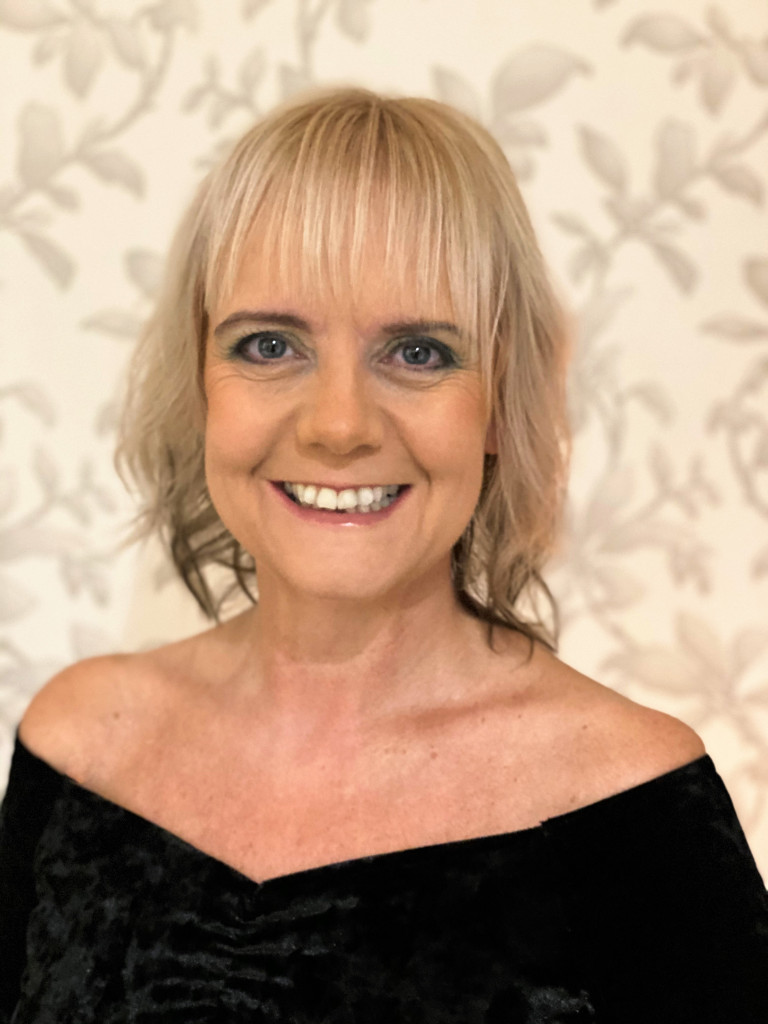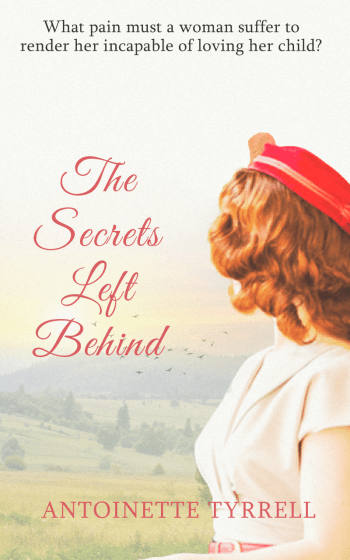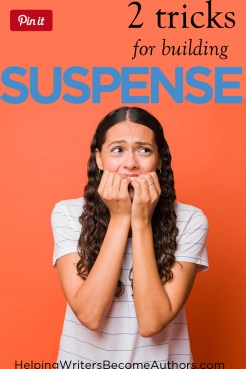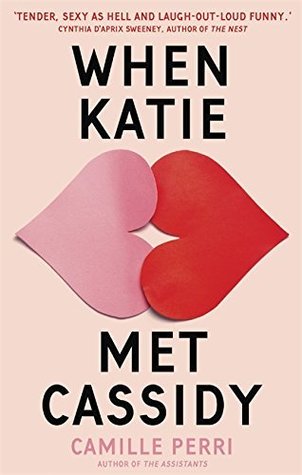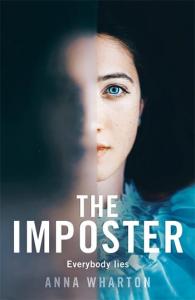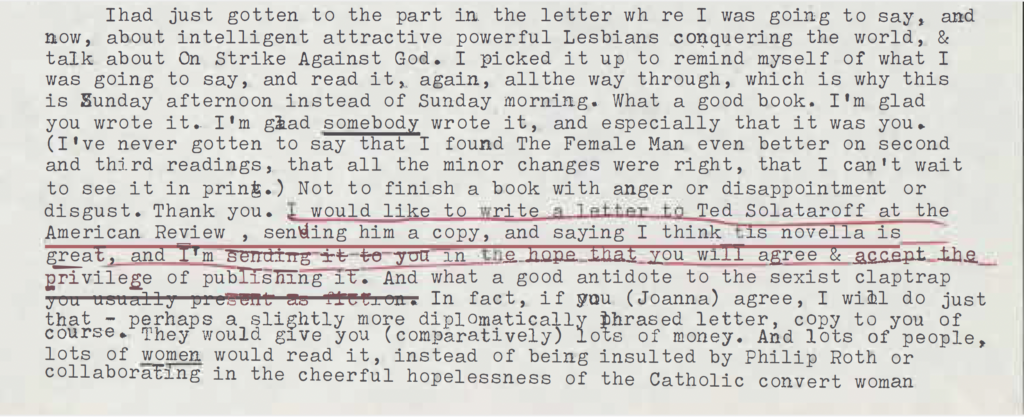
A letter from Marilyn Hacker to Joanna Russ.
The following correspondence between Joanna Russ and Marilyn Hacker is drawn from a new edition of Russ’s On Strike Against God (1980), edited by Alec Pollak, to be published by Feminist Press in July. You can read Pollak’s introduction to the work of Joanna Russ on the Daily here.
October 23, 1973
Dear Marilyn,
Your letter is lovely—esp. since now I can write two letters where formerly I would’ve written one: one to you, one to Chip.
Your book business is rather like my teaching, except teaching does leave more time & more ways one can cut corners, and so on. And you are beginning to sound just like Chip about London—I have this feeling that the two of you will turn up in NYC again—or I guess I should say the three of you.
And goodness knows, you BOTH need separate rooms. And the baby ought to have a velvet-lined cell where it can be put when both grown-ups have other things to do. Mind you, a nice cell, and a nest, too, but having seen your flat, I agree that it’s crowded.
God, it seems we all end up in the same place. A very close friend of mine, who used to get upset when I went on & on about MEN is now divorced; another came back from Canada more militant than I’ve ever been, and here you are saying just what we’re all thinking.[1] I can’t read modern novels anymore (unless they’re by women), I can’t bear the conventional Didion sort of stuff, the usual Young Enraged Man simply seems to be writing from the other side of the moon or something. And I am worrying endlessly over the aesthetics of propaganda/polemic/didactic writing, trying to figure out (the worst problem currently) whom one is writing to. I think we both went through the business of I’m Not A Girl I’m A Genius, only they really won’t let one do that; it just won’t work. George Eliot is the most heartbreaking cop-out I’ve been able to find: every book I’ve read (tho’ I haven’t read Romola) breaks about halfway through. Her courage falters, her plot switches in midtrack like a locomotive suddenly on a switchback, and the scheme of the book crumples up. And it’s always where she comes to the conventional limits of femininity. Maggie changes into a different character in midbook in The Mill on the Floss (so does Tom, by the way)—Daniel Deronda is really two books—poor Gwendolen is left hanging in midair in the damnedest way while Daniel takes off for Zionism—and in Middlemarch, Dorothea’s first problem (what to do with herself ) somehow vanishes in the middle of a Love Affair. You can just see the book fall to pieces in each case. Only Adam Bede holds together—and there’s no stand-in for the author there. Brontë, seems to me, simply stuck to her own experience and let it dictate to her: she writes the Great Romance once (Jane Eyre, naturally the book everyone reads), lets her book split in two in Shirley, and breaks into the most bitter, passionate kind of subversion in Villette. Which is why, I am beginning to suspect, George Eliot (with her male worldview) is considered a Great Writer and Brontë isn’t. Or aren’t (both).
- Top 18 Best Web Hosting Services In 2024: Despite there are multiple web hosting providers available in the market, choosing the best one is really a hard nut to crack!! Because almost all service providers are offering their services with the same features and quality.
- How to start your own Crypto currency website: For a cryptocurrency news website, choosing the right Content Management System (CMS) is crucial for managing content effectively, ensuring security, and providing a great user experience. Here are some of the best CMS options tailored for such a site, each with its unique strengths:
- The Evolution of Coffee Brewing Methods: A Historical Perspective: Coffee has been brewed and enjoyed for centuries, with various methods evolving over time to create the perfect cup of joe. From early methods like the Ibrik method and coffee pots for coffee houses to modern technologies like the AeroPress and Hario V60, the world of coffee brewing has come a long way.
- Stop WordPress from Creating Extra Cropped Image Sizes: Whenever you upload an image to your WordPress site through the media library, it automatically creates and stores multiple additional versions of that image. If your site doesn’t utilize these extra image sizes, they will consume valuable storage space and increase the size of your server backups.
- Explain WordPress Portfolio and how to created them: WordPress portfolios are digital showcases for individuals or businesses to display their work, projects, or professional accomplishments. This feature is particularly useful for creatives, freelancers, and agencies looking to exhibit their skills or services in a visually appealing and organized manner. Portfolios in WordPress can be created using various methods, including themes that come with built-in portfolio functionalities, plugins that add portfolio features, or custom coding for a more personalized approach.
- 15 Essential WordPress Plugins For Every Site: Plugins are essential for every type of website, as they provide additional features and customization options that are not available in the core WordPress platform. A study by CodeinWP found that the average WordPress site has 20 active plugins, indicating the importance of plugins in website development.
- SAILING and YACHTING: Awesome Sailing Vlogs for the Enthusiast
- Comparing Google and Microsoft’s Success in Capitalizing on Generative AI: The buzz of interest in AI services helped drive revenue for Microsoft’s biggest unit, cloud services—up by 7 percentage points compared to a year ago—and Microsoft’s overall sales rose 17 percent to nearly $62 billion. It also gained cloud market share, Nadella added. The number of $100 million cloud deals that Microsoft landed increased 80 percent during the quarter compared to the same period a year ago, and $10 million deals doubled.
- The Best WordPress Hosting Solution in Australia: Each of our WordPress hosting solutions are fine-tuned, blazing fast and are ready for you! Starting a WordPress website has never been easier with our free 1-click WordPress installation, enterprise-grade security and an assortment of tutorials and helpful guides to get you started, all backed by our 99.9% uptime guarantee.
- Elementor vs Beaver Builder: A Comparison of Design Flexibility and Performance in WordPress: Elementor and Beaver Builder are two of the most widely recognized options, each providing distinct features that cater to varying user requirements. This article conducts a comprehensive comparison of these tools, examining their design flexibility, performance metrics, and overall user experience.
- The Best Contact Form Plugins for WordPress to Easily Manage User Inquiries: In an effort to improve user interactions on WordPress websites hosting, the examination of contact form plugins becomes essential. This article aims to present an overview of the top 5 contact form plugins available for WordPress, highlighting their features and pricing structures to facilitate an well-considered choices process.
- What are the 20 best Joomla plugins: Joomla plugins are small, task-specific extensions that enhance or modify the core functionality of a Joomla website. They operate as event-driven scripts, listening for specific “events” triggered by Joomla or its components and executing corresponding actions. Plugins are a crucial part of Joomla’s extensibility, allowing developers to add features or customise behaviour without altering the core Joomla code.
- How to design a strong off-page SEO strategy: Lessons learnt from earning over 50,000 contextual links for thousands of websites in the toughest niches. In 2023, virtually every business that has a website is prioritizing their investment in SEO. The reason being, amidst the chaos of the current year, customers are resorting to online channels for safe purchasing, and optimizing their online presence is a surefire way to gain an edge over rivals. While some firms have set up internal teams, and others have hired external agencies to boost their search engine rankings, a documented off-page SEO strategy is still a rarity among most businesses.
- What are WordPress Plugins? WordPress plugins are modular pieces of software that can be added to a WordPress site to extend or enhance its functionality without modifying the core WordPress code. They allow website owners to add features, improve performance, and customise the behaviour of their websites easily, catering to a wide range of needs, from SEO and security to e-commerce and design enhancements.
I don’t think it’s a matter of space but of fear. There’s Daniel’s mother in Deronda, the Jewish opera singer who hacked her way out of the ghetto and a ghastly father, even gave away her son so (1) she wouldn’t have to bother about him & didn’t want to and (2) so he wouldn’t be raised a Jew: it’s all there, the freedom, the ruthlessness, the price, the transcendent, necessary arrogance—and the author takes it all back by saying she isn’t LOVING. (!) Her life could be written, even in the nineteenth century, but Eliot didn’t. Brontë could have. I think Lucy Snowe is magnificent, tho’ I suspect some of the loose ends in the book might just come from Brontë’s early death. Was it published after her death? …
I’m happy with my teaching now, loathing my colleagues more than I can say (it wasn’t Cornell; it’s just the Type), and have just finished a thirty-eight-thousand-word novella in which my two Lesbian heroines end up practicing shooting a rifle in their backyard. I want to call it “On Strike Against God,” this being what some judge said in the nineteenth cent. to a group of striking women workers: that they were on strike not just against their employers but against God.
I would imagine you’d know by now—has Chip mentioned it to you?—that I’ve just about decided heterosexuality is, for me, the worst mistake I could make with the rest of my life. I was itching to tell you when I saw you in London but was too craven. And—not that I think you will immediately broadcast the news—do not tell anyone. I am not sure yet how I want to become publicly branded or by whom. And certainly if by chance any news of this should seep back to the academic community in which I live, that would most likely be IT.
The labeling still bothers me. I don’t feel like an anything sexually—and am quite capable of watching Christopher Lee on the Late Late Show (when I don’t have class the next day) and mooning about him all night. But I have more and more the feeling that my attraction towards men is compounded of a real witch’s brew of bad things—adoration, self-contempt, nostalgia, negativity—there’s something not-real about it, very imaginative and all that but still all in the head. While what I have felt for women has always been real, concrete, hooked to a concrete situation and person, and quite freeing. And very sexual. I keep trying to tell myself that the sex of the person I’m attracted to doesn’t matter, but that’s nonsense. It matters tremendously. Because all the power di!erentials, all the politics, all the pain & despair and God knows what of the past 34 years (by the age of two I was already being made into a sexist mess), simply can’t be wiped away. Maybe they could if the world around me did not constantly and endlessly reinforce them. (Which is a point I often tried to make to my analyst, without the slightest success.) I suspect you are right, and that we are all involved in very complex gender games, that people become hetero- or homosexual for very different, individual, and complicated reasons, and that men and women do so for extremely different reasons. But somehow all this has to be shoved into two labels. As a character says in that wonderful What the Butler Saw: “There are only two sexes, Preston, only two! This attempt at a merger will end in catastrophe.”
So I have fantasies (when I do) about men, but seldom. And none at all about women (except willful ones). And am not sleeping with anybody. And I keep losing the memory of my one rather pitiful and disastrous Lesbian affair, which was nonetheless magnificent, freeing, sensuous, beautiful, mind-bending, and real. I suppose the problem is that even with a Lesbian mind or soul or personality, I still walk around with a head full of heterosexual channeling. But it doesn’t seem to get below the head.
Of course there seems to be no way of making friends with any of the men here without getting my toes trampled on constantly. I try to turn a lot of it aside, or laugh at it, or ignore it, not wanting to fight a dozen battles a day, so eventually I explode and they are all amazed. I’m told I’m “oversensitive”—a quantified view of existence that has always puzzled me immensely! And alas there are so few people to talk to. And I’m tremendously gregarious at work. That is probably a writer’s problem: one can be either alone-and-working or gregarious, but switching takes time.
That may be why you’ve been so caught up in buying books—get into one head and you can’t get out into another.
My former lover and I are still very good friends, by the way. She has simply run shrieking from any sexual contact with anybody, apparently feeling so overwhelmable by people that she won’t sleep with anyone. And I do think feeling herself to be a (gasp, gulp) Lesbian did freak her out. But my goodness, I don’t feel any different.
Chip’s preface to Hogg impressed me a lot as you know, if you saw my letter to him—because of the connection it suggests—absolutely bedrock connection—between aesthetics and ethics. Aesthetics IS ethics,[2] in another key, one might say. I find myself worrying endlessly over my novel and the new novella that somehow the structure isn’t right, isn’t tidy, isn’t “dramatic” or “good”—because indeed once you get outside the accepted values, everything changes, including one’s ideas of narrative. So the long, long short story (I think it’s really a short story in motion, if not in length) has no proper “ending”—it ends with a leap into the future, so to speak. Either one must leave that up in the air, as it were (Villette!), or end in defeat, which is a beautifully aesthetic ending, but hateful morally. Both the novel and the story end by, in a way, dumping themselves into the reader’s laps. And my OWN aesthetic sense, nurtured by unities and conclusiveness and dramatic resolutions which, in fact, are embodiments of accepted moral ideas, stirs uneasily and says, No, no, no. But (responds the other lobe of the brain) that’s what happened. How can one write about success in a situation in which success and the implications of it are still unrealized and fluid in actuality?
Suppose, for example, in The Left Hand of Darkness, Estraven hadn’t died? What a bloody moral mess Le Guin would have on her (I almost wrote “his”) hands! Here we have an alien hermaphrodite and a male human (who’s not quite real) in bed together. Worse still, living together. Could they live happily ever after? What would the real quality of their feeling for each other be? Could they get along? (Probably not.) Would they end up quarreling? (Their heat periods don’t match, let alone culture shock.) So the great old Western Tragic Love Story is called in to wipe out all the very human, very real questions, and we can luxuriate in passion without having to really explore the relationship. You see what I mean.
It just struck me that my 2 pieces, like Invisible Man, like Rubyfruit Jungle, like even Isabel and Sarah (which is cute but not that good) have no “endings”—the story ends either by saying; Here I Am—i.e. burning into you an image of the protagonist’s predicament[3] (like Ellison and like my novel) OR by saying not “We succeed” but “We are now ready to attempt” or “We begin to attempt.” Which, studied by traditional criticism, is all very unimpressive, and “badly-structured.” Villette, it seems to me, ends with a Here I AM. You either end with “Now we actually begin” (or “It’s up to you, reader”) i.e. the rallying cry to the barricades—or we end with sheer lyricism, the power of one image, like the man in his room lined with electric light bulbs. One is a double-bind; the other is a promise or an appeal. And promises and appeals are certainly suited to propaganda. There have been lots of Unhappy Housewife novels in which (if she doesn’t go mad) the woman abruptly “solves” her predicament by denying it; I have 5 paperback books that do this, inc. Up the Sandbox, which is the worst. Also Diary of a Mad Housewife. They won’t make the leap. Polemics ought to end with a kind of prayer. I found myself writing at the end of my novel “Go, little book” etc. and last line “For on that day, we will be free.” (Schmalz, I tell you!) And in the novella, “I never challenged Daddy—til now.” But these are beginnings, not endings. So the aesthetic of polemic is going to be very very di!erent from the aesthetic of either comedy or tragedy. (Isn’t there something in German romantic writing that has this odd, “unfinished” quality? Because, in fact, it hasn’t yet happened? Shelley’s Prometheus ends with the lyrical faith-leap into The Image.) Oh tragedy is so beautiful. Jeez. Ugh. In my novella I said “You want a reconciliation scene? You write it.”
It really is aesthetically different. I suppose to poets it’s just as hard, but I envy you—you don’t have to produce PLOTS, you bastards.
Here I am, hung up on explaining to my friend here why I loathe and wish to destroy paternal middle-aged white men who tease me by flirting with me.
And a former Cornell colleague saying airily that Gilman et al. are silly people and why get angry at them?
Anyway, just came to me that in the novella, the process is as clear and plain as can be: (1) heroine has happy Lesbian love affair, after lots of initial worrying and reluctance (2) heroine “tries out” her feminism—integral to the affair and in fact what produced it—on 2 sets of friends (3) is repulsed by both (4) is radicalized (5) gets lover back (who has been going through same process) (6) prepares for Ultimate Revolution by learning to shoot rifle. Says her one wish is to “kill someone.” Not in hatred, but to make a change, a difference, a dent in the world. Could it be more dramatically/narratively put? Problem is that the ending is ethically the wrong sign—it shocked me as I wrote it. And what it will do to my colleagues if they ever read it is best left unimagined!
The pressure of the endings I didn’t write—the suicide, the reconciliation, the forgetting of the feminist issues (which I think far outweigh, or rather include, the Lesbian ones) kept trying to push me off my seat as I wrote. I kept saying to myself “That’s banal. That’s propaganda. That’s obvious.” (Oh how subtle failure can be!) But there was simply nothing else to do—anything else would have been false. In a vague way I remembered Frantz Fanon’s bit about having to shoot the oppressor just to make the tremendous discovery that The Man is vulnerable. But it was pure Russ, I assure you.
The aesthetic problem, as I see it, is that the “prepare to succeed” is itself tentative and complex—it’s not like an already settled issue, i.e. the Knights of Malta marching off to the Crusades. The real uncertainty of real issues comes in.
Goddess knows, it’s also the only kind of live literature now. All the old solutions have turned to fuzz & lint, as far as I am concerned. For women it was always (1) failure (2) the love affair which settles everything. Look at George Eliot, WANTONLY drowning Maggie so she can rehabilitate her. Oh, it kills me. This, from a talent as good as (or even better than) Tolstoy! Wuthering Heights gives us both the old tragedy and the new tentative hope-of-success—which is why, of course, all movie adaptations leave out Part II and no critic up until College English 1970 has spent any time at all on Cathy #2 and Hareton Earnshaw, except to say that the novel “declines.”
I am getting so that the very name “tragedy” or phrases like “the beauty of tragedy” make me grind my teeth. What excuses! Ah, one learns from suffering. Go tell it to Ralph Ellison.
And the happy ending of The Exception.
Still, it’s good to be writing now (if not living). All these beautiful pathetic heroines drowning & dying & getting poisoned or going interestingly mad. And all these heroes dying nobly, feh. Feh, feh, feh.
I must stop now—I haven’t yet got my rugs and my downstairs neighbors (who get up at 6 a.m.) come hallooing up the stairs if I type past 11. This spring I shall try to get a house.
Tell Chip that my new novella ends where he thought Female Man should end. (Actually I was getting there at the end of Chaos, when I had someone say “Just life” i.e. not a settlement or solution, just things going along.) Oof! If you have time, tell me what kind of poetry you’ve been thinking of. The whole business of propaganda is utterly fascinating to me.
It is the only live stuff.
Joanna
September 28, 1975
Dear Joanna,
… I had just gotten to the part in the letter where I was going to say, and now, about intelligent attractive powerful Lesbians conquering the world, & talk about On Strike Against God. I picked it up to remind myself of what I was going to say, and read it, again, all the way through, which is why this is Sunday afternoon instead of Sunday morning. What a good book. I’m glad you wrote it. I’m glad somebody wrote it, and especially that it was you. (I’ve never gotten to say that I found The Female Man even better on second and third readings, that all the minor changes were right, that I can’t wait to see it in print.) Not to finish a book with anger or disappointment or disgust. Thank you. I would like to write a letter to Ted Solotaroff at The American Review, sending him a copy, and saying I think this novella is great, and I’m sending it to you in the hope that you will agree & accept the privilege of publishing it. And what a good antidote to the sexist claptrap you usually present as fiction. In fact, if you (Joanna) agree, I will do just that—perhaps a slightly more diplomatically phrased letter, copy to you of course. They would give you (comparatively) lots of money. And lots of people, lots of women would read it, instead of being insulted by Philip Roth or collaborating in the cheerful hopelessness of the Catholic convert woman short-story writer with eight children and a sexy but unsympathetic husband. (but Nature is beautiful, isn’t it?)
May I indulge in a few very small bits of lit-crit? I will.
Until the party scene, I was confused about Jean’s age & status (job). On second reading, I noticed that she is said to be considerably younger than her friends, who are later said to be in their mid-thirties. But on first reading I assumed she & Esther were coevals until the party, when I found out she was 25. Somehow things would have clarified themselves much more quickly (in terms of visualizing the characters &c) if she was said fairly early to be a 25-year-old graduate student (because I kept picturing her to myself as 35, profession to be revealed, simply, I guess because one assumes that people described first as my friend X are the same age as the speaker. The narrator’s past experiences given in the first pages place her in her thirties pretty definitely.
I’m probably not entitled to say this, but Stevie’s reaction, though perfectly believable seemed to me pretty atypical of what the average gay male reaction would be (Relieved? Congratulatory?) Which is not to exonerate gay males of sexism, or to want the episode changed.
Very minor point—when Esther goes back home, & describes having been attracted to a girl she saw walking in front of the library, this girl seems to be wearing the same outfit, or at least the same top, as Leslie was at Ellen & Hugh’s, though it isn’t said to be the same or similar. And it just made me stop a moment. I mean, if it was the same blouse, Esther would have noticed it. And if it wasn’t, its description made it seem so.
And last. The last pages are good, well-written, occasionally brilliant, threatening, strong, &c. But why are they addressed to men? I wanted this one to be for us, women. I can see the problem, that the book must end on a note of challenge, and you’re not looking to go out & shoot women, but there is still the implication that The Man is still so important that even this book, even in defiance, in hatred, in challenge, is addressed to him, that the person you see reading it is not a woman or a girl thinking here is something at last, but a man being Affronted.
Chip & Whi”es came back. Chip out again to see if an ambulance comes for a man who had a heart attack or epileptic fit in the park next door. Whiff is sitting on the floor at my feet, tearing a telephone book in half. Page by page, admittedly, but she’ll work her way up to more impressive feats. Trying to crawl these days, and obsessed by the problem. Betting (straight light brown) hair.
Will close now and post this.
Love, Marilyn
[1] And what you were not saying two summers ago.
[2] Like “The political is the personal!” Propaganda is an appeal to the future.
[3] which is always a double bind, a no-win situation.
Joanna Russ (1937–2011) was a Hugo and Nebula Award–winning author of feminist science fiction, fantasy, and literary criticism. She is best known for her novel The Female Man and now for her darkly funny survey of literary sexism, How to Suppress Women’s Writing.
Marilyn Hacker is an award-winning poet, translator, editor, and lesbian activist. She is the author of nineteen volumes of poems, and her honors include the National Book Award, the Lambda Literary Award, the PEN Award for Poetry in Translation, the Robert Fagles Translation Prize, and the PEN/Voelcker Award for Poetry.

